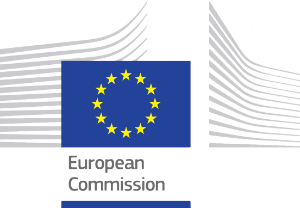About this webinar:
In recent years, a new round of technological revolution led by digital technologies such as robotics, big data, Internet of Things, artificial intelligence, reverse engineering with 3D printing and scanning, virtual and augmented reality, are creating significant changes both in everyday life and in production and processing methods. These changes have huge implications for the global economy, industry and wider society as a whole.
They could not leave the world of culture untouched. Their contribution to the protection of archaeological sites and monuments in an environment of intense climatic phenomena is very important and is rapidly evolving through the application of technological achievements. By presenting the scope of these technologies and focusing on their application in the protection of archaeological sites and monuments, the need for interconnection and integration of new technologies with archaeological sites and monuments is highlighted.
Following the role of these emerging technologies, a novel practical approach will be presented that consists of risk assessment techniques and edge technologies such as Artificial Intelligence and the Internet of Things. The practical, holistic and easily adaptable methodology will reveal how intelligent agent technology can have a significant impact, improving the way in which first responders and monument managers, even visitors, react to and handle risky or emergency situations. A pilot case study will emphasize how monuments and human lives can be protected and saved. The aim is to understand how right prognosis along with smart decisions will help prevent potential damage to the Cultural and Natural heritage without human losses.
Speakers:
Apostolos Tsagaris
is Associate Professor in the field of Human interaction with mechatronic and robotic systems in the Department of Industrial Engineering and management at International Hellenic University of Thessaloniki, Greece and at this time he is the Head of the department. He Received a Bachelor’s degree in Automation Engineer (Technological Educational Institute of Thessaloniki, 1994), MSc in Design of interactive and industrial products and systems (Aegean University, 2005), Msc in Mechatronics (University of polytechnic from Catalonia – Barcelona in corporation with T.E.I of West Macedonia, 2007), Med in Adult Education (Open University of Patras, 2010) and MBA (Open University of Patras, 2018). From 2014 to 2016 he carried out Post-Doc research entitled “Development of a knowledge collection methodology by capturing and processing finger-movements / gestures and voice commands, through multimodal physical interaction interfaces using recognition technologies as well as integration of data from signal recording through sensors.”He has many years of experience in the field of industry where he collaborated with major Greek and foreign industries. He is a certified trainer at the National School of Public Health, the Ministry of National Defense, the School of Management of Staff of the Ministry of Economy and Finance and the Institute for Training of the National Center for Public Administration. He has published more than 84 scientific papers at conferences and journals. He also holds a patent titled "Method for real time control of mechatronic systems through Dynamic gestures". He has published a book and has written a number of lesson notes. Finally, he has participated in over 22 research projects.
Kalliopi Kravari
is an adjunct lecturer at the International Hellenic University (IHU) in Intelligent Systems. At the same time, she is a postdoctoral researcher at the Aristotle University of Thessaloniki (AUTH), where she is a member of the Intelligent Systems Lab of the School of Informatics, Greece. She holds a Postdoc (NSF Grants) and a Ph.D. degree in Artificial Intelligence from the Aristotle University of Thessaloniki, School of Informatics (2015). She received a BSc (2007) and an MSc (2009) degree in informatics and an MSc in Theology (2016) from the AUTH. She also attended the Pedagogical Training Program (EPPAIK) of the School of Pedagogical and Technological Education, Greece (2016). She is member of HAIS (Hellenic Artificial Intelligence Society), member of the Hellenic Committee of the Blue Shield, and member of the UNESCO Chair on Conservation and Ecotourism of Riparian and Deltaic Ecosystems, IHU while she is deputy director of ’’Analysis and Management of Natural Disasters and Technological Risks’’ (ASSIST) Lab, IHU. She is also the CEO of RESHUB LTD, a company oriented to AI R&D and project management. She has participated in more than 20 research and administrative programs. She has published more than 40 journal papers, book chapters and conference papers, receiving over 300 citations (h-index 7). She has also received two best paper awards, an honor award as well as two excellence AUTH awards. She is reviewer in journals and conferences, she participates in conference committees while she is a topic editor at sustainability journal and invited speaker at academic festivals. Her research interests include, among others, Artificial Intelligence, Internet of Things and Intelligent Agents, Intelligent information systems and Semantic Web. More specifically, she is interested in Intelligent Multi-Agent Systems issues, including among others Trust Management, IAs in the IoT, Knowledge Representation and Reasoning, Logic, Rule-based and Object-oriented programming, Ontologies and Rules.

